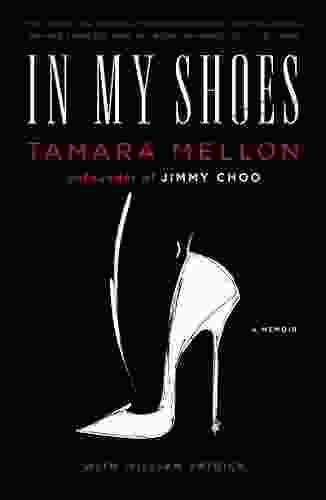Things Might Have Said: A Comprehensive Exploration of Unspoken Words and Their Impact

Words hold immense power. They can build bridges, mend broken hearts, inspire change, and ignite revolutions. But what happens when words remain unspoken, trapped within the confines of our minds? The world of unspoken words is a complex and fascinating one, filled with potential both for growth and for pain.
5 out of 5
| Language | : | English |
| File size | : | 377 KB |
| Text-to-Speech | : | Enabled |
| Screen Reader | : | Supported |
| Enhanced typesetting | : | Enabled |
| Print length | : | 100 pages |
| Lending | : | Enabled |
This article will delve into the intricate tapestry of unspoken words, exploring their causes, consequences, and the ways in which we can navigate their complexities. By gaining a deeper understanding of this hidden realm, we can unlock the transformative power of open dialogue and forge more meaningful and fulfilling connections with ourselves and others.
The Reasons Behind Unspoken Words
There are countless reasons why words might remain unspoken. Sometimes, fear holds us back. We fear judgment, rejection, or conflict, so we choose to stay silent rather than risk potential repercussions. Other times, shame or embarrassment keep us from expressing ourselves. We may feel ashamed of our thoughts or feelings, so we bury them deep within ourselves, never allowing them to see the light of day.
Cultural norms can also play a role in silencing our voices. In some cultures, it is considered impolite or disrespectful to speak openly about certain topics, such as mental health or sexuality. As a result, people may bottle up their thoughts and feelings, leading to feelings of isolation and loneliness.
The Consequences of Suppressing Our Voices
Suppressing our voices can have a profound impact on our physical, emotional, and mental well-being. When we hold back our words, we inadvertently create a barrier between ourselves and the world. We may feel isolated, misunderstood, and unable to connect with others on a deep level.
Unexpressed emotions can also lead to a variety of physical health problems, such as headaches, stomach aches, and insomnia. Over time, suppressed emotions can take a toll on our immune system, making us more susceptible to illness.
Perhaps most importantly, suppressing our voices can stifle our personal growth. When we do not express our thoughts and feelings, we lose the opportunity to learn from our experiences and to grow as individuals.
Strategies for Expressing Ourselves Effectively
Learning to express ourselves effectively is a crucial skill for navigating the complexities of human relationships. While it may not always be easy, there are a number of strategies we can use to overcome our fears and to speak our minds with clarity and assertiveness.
One important strategy is to practice self-reflection. Before we can express ourselves effectively, we need to have a clear understanding of our own thoughts and feelings. Take time to journal, meditate, or talk to a trusted friend or therapist about what is going on inside of you.
Once you have a better understanding of your own inner world, you can begin to practice expressing yourself in small ways. Start by sharing your thoughts and feelings with people you trust, such as close friends or family members. As you become more comfortable with self-expression, you can gradually expand your circle of communication to include more challenging relationships.
It is also important to learn how to listen actively. When someone is speaking to you, give them your full attention. Make eye contact, nod your head, and ask clarifying questions. By demonstrating that you are truly listening, you create a safe and supportive space for others to express themselves.
The Transformative Power of Open Dialogue
Open dialogue is a powerful tool for healing, growth, and connection. When we engage in open dialogue, we create a space where all voices are heard and respected. We listen to each other with empathy and understanding, and we strive to find common ground even when our perspectives differ.
Open dialogue can help us to resolve conflicts, build stronger relationships, and create a more just and equitable society. By embracing the transformative power of open dialogue, we can unlock our full potential as human beings and create a world where everyone has a voice.
The world of unspoken words is a complex and often misunderstood one. By gaining a deeper understanding of the reasons why words might remain unspoken, the consequences of suppressing our voices, and the strategies for expressing ourselves effectively, we can unlock the transformative power of open dialogue and forge more meaningful and fulfilling connections with ourselves and others.
Remember, your voice matters. Never be afraid to speak your mind, even if your voice shakes or your words are imperfect. The world needs to hear from you.
5 out of 5
| Language | : | English |
| File size | : | 377 KB |
| Text-to-Speech | : | Enabled |
| Screen Reader | : | Supported |
| Enhanced typesetting | : | Enabled |
| Print length | : | 100 pages |
| Lending | : | Enabled |
Do you want to contribute by writing guest posts on this blog?
Please contact us and send us a resume of previous articles that you have written.
 Top Book
Top Book Novel
Novel Fiction
Fiction Nonfiction
Nonfiction Literature
Literature Paperback
Paperback Hardcover
Hardcover E-book
E-book Audiobook
Audiobook Bestseller
Bestseller Classic
Classic Mystery
Mystery Thriller
Thriller Romance
Romance Fantasy
Fantasy Science Fiction
Science Fiction Biography
Biography Memoir
Memoir Autobiography
Autobiography Poetry
Poetry Drama
Drama Historical Fiction
Historical Fiction Self-help
Self-help Young Adult
Young Adult Childrens Books
Childrens Books Graphic Novel
Graphic Novel Anthology
Anthology Series
Series Encyclopedia
Encyclopedia Reference
Reference Guidebook
Guidebook Textbook
Textbook Workbook
Workbook Journal
Journal Diary
Diary Manuscript
Manuscript Folio
Folio Pulp Fiction
Pulp Fiction Short Stories
Short Stories Fairy Tales
Fairy Tales Fables
Fables Mythology
Mythology Philosophy
Philosophy Religion
Religion Spirituality
Spirituality Essays
Essays Critique
Critique Commentary
Commentary Glossary
Glossary Bibliography
Bibliography Index
Index Table of Contents
Table of Contents Preface
Preface Introduction
Introduction Foreword
Foreword Afterword
Afterword Appendices
Appendices Annotations
Annotations Footnotes
Footnotes Epilogue
Epilogue Prologue
Prologue Raven Mcallan
Raven Mcallan Rachel Lynn Brody
Rachel Lynn Brody Peter R Hall
Peter R Hall Sara J Weis
Sara J Weis Revised Edition Kindle Edition
Revised Edition Kindle Edition Vince Flynn
Vince Flynn Marcus Buckingham
Marcus Buckingham Kelly Keaton
Kelly Keaton Stephen Spender
Stephen Spender Tom Bober
Tom Bober Scott Reynolds Nelson
Scott Reynolds Nelson Douglas Adams
Douglas Adams Martha Stewart
Martha Stewart Lorenzo Bernini
Lorenzo Bernini Tamara Mellon
Tamara Mellon Margaret Gibson
Margaret Gibson Ed Back
Ed Back Dan Hampton
Dan Hampton Kindle Edition
Kindle Edition K G Lewis
K G Lewis
Light bulbAdvertise smarter! Our strategic ad space ensures maximum exposure. Reserve your spot today!

 Al FosterBag of Dolls: Ben Hood Thrillers 36 - A Heart-Pounding Journey into the Realm...
Al FosterBag of Dolls: Ben Hood Thrillers 36 - A Heart-Pounding Journey into the Realm...
 T.S. EliotThe Unparalleled Thrills of Ben Hood: Unraveling the Treasure Hunter's Daring...
T.S. EliotThe Unparalleled Thrills of Ben Hood: Unraveling the Treasure Hunter's Daring...
 Ralph TurnerPostcards From The Interior American Poets Continuum 92: A Journey Through...
Ralph TurnerPostcards From The Interior American Poets Continuum 92: A Journey Through... Gus HayesFollow ·8.3k
Gus HayesFollow ·8.3k Adam HayesFollow ·9.6k
Adam HayesFollow ·9.6k Greg CoxFollow ·9.3k
Greg CoxFollow ·9.3k Blake BellFollow ·13.7k
Blake BellFollow ·13.7k Arthur C. ClarkeFollow ·2.4k
Arthur C. ClarkeFollow ·2.4k Fred FosterFollow ·6.1k
Fred FosterFollow ·6.1k Andy HayesFollow ·18.4k
Andy HayesFollow ·18.4k Brayden ReedFollow ·10.1k
Brayden ReedFollow ·10.1k

 Eugene Powell
Eugene PowellComplete Guide to Using Yoga With Kids: Benefits, Tips,...
Yoga is an ancient practice that has been...

 Benji Powell
Benji PowellHow to Make $000 Per Week on Craigslist
Are you looking for a way to make extra money...

 Gabriel Garcia Marquez
Gabriel Garcia MarquezGrocery Row Gardening: The Exciting New Permaculture...
Kick-start your gardening journey with the...

 Hayden Mitchell
Hayden MitchellUnveiling the Gripping World of Winterwood: Ben Hood...
In the annals of crime thrillers, the...

 E.M. Forster
E.M. ForsterThe Financial Advisor Guide To Managing and Investing...
As a financial...

 Lee Simmons
Lee SimmonsIn My Shoes Memoir: A Poignant Journey of Resilience,...
In the tapestry of life, adversity often...
5 out of 5
| Language | : | English |
| File size | : | 377 KB |
| Text-to-Speech | : | Enabled |
| Screen Reader | : | Supported |
| Enhanced typesetting | : | Enabled |
| Print length | : | 100 pages |
| Lending | : | Enabled |






